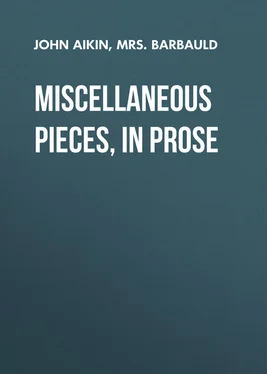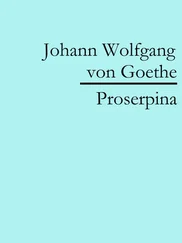John Aikin - Miscellaneous Pieces, in Prose
Здесь есть возможность читать онлайн «John Aikin - Miscellaneous Pieces, in Prose» — ознакомительный отрывок электронной книги совершенно бесплатно, а после прочтения отрывка купить полную версию. В некоторых случаях можно слушать аудио, скачать через торрент в формате fb2 и присутствует краткое содержание. Жанр: foreign_language, foreign_antique, foreign_prose, на английском языке. Описание произведения, (предисловие) а так же отзывы посетителей доступны на портале библиотеки ЛибКат.
- Название:Miscellaneous Pieces, in Prose
- Автор:
- Жанр:
- Год:неизвестен
- ISBN:нет данных
- Рейтинг книги:5 / 5. Голосов: 1
-
Избранное:Добавить в избранное
- Отзывы:
-
Ваша оценка:
- 100
- 1
- 2
- 3
- 4
- 5
Miscellaneous Pieces, in Prose: краткое содержание, описание и аннотация
Предлагаем к чтению аннотацию, описание, краткое содержание или предисловие (зависит от того, что написал сам автор книги «Miscellaneous Pieces, in Prose»). Если вы не нашли необходимую информацию о книге — напишите в комментариях, мы постараемся отыскать её.
Miscellaneous Pieces, in Prose — читать онлайн ознакомительный отрывок
Ниже представлен текст книги, разбитый по страницам. Система сохранения места последней прочитанной страницы, позволяет с удобством читать онлайн бесплатно книгу «Miscellaneous Pieces, in Prose», без необходимости каждый раз заново искать на чём Вы остановились. Поставьте закладку, и сможете в любой момент перейти на страницу, на которой закончили чтение.
Интервал:
Закладка:
After I had observed these things, I turned my eyes towards the multitudes who were climbing the steep ascent, and observed amongst them a youth of a lively look, a piercing eye, and something fiery and irregular in all his motions. His name was genius. He darted like an eagle up the mountain, and left his companions gazing after him with envy and admiration: but his progress was unequal, and interrupted by a thousand caprices. When Pleasure warbled in the valley, he mingled in her train. When Pride beckoned towards the precipice, he ventured to the tottering edge. He delighted in devious and untried paths; and made so many excursions from the road, that his feebler companions often outstripped him. I observed that the Muses beheld him with partiality; but Truth often frowned and turned aside her face. While Genius was thus wasting his strength in eccentric flights, I saw a person of a very different appearance, named application. He crept along with a slow and unremitting pace, his eyes fixed on the top of the mountain, patiently removing every stone that obstructed his way, till he saw most of those below him who had at first derided his slow and toilsome progress. Indeed there were few who ascended the hill with equal and uninterrupted steadiness; for, beside the difficulties of the way, they were continually solicited to turn aside by a numerous crowd of Appetites, Passions, and Pleasures, whose importunity, when they had once complied with, they became less and less able to resist; and, though they often returned to the path, the asperities of the road were more severely felt, the hill appeared more steep and rugged, the fruits which were wholesome and refreshing, seemed harsh and ill-tasted, their sight grew dim, and their feet tript at every little obstruction.
I saw, with some surprize, that the Muses, whose business was to cheer and encourage those who were toiling up the ascent, would often sing in the bowers of Pleasure, and accompany those who were enticed away at the call of the Passions. They accompanied them, however, but a little way, and always forsook them when they lost sight of the hill. Their tyrants then doubled their chains upon the unhappy captives, and led them away without resistance to the cells of Ignorance, or the mansions of Misery. Amongst the innumerable seducers, who were endeavouring to draw away the votaries of Truth from the path of Science, there was one so little formidable in her appearance, and so gentle and languid in her attempts, that I should scarcely have taken notice of her, but for the numbers she had imperceptibly loaded with her chains. Indolence (for so she was called), far from proceeding to open hostilities, did not attempt to turn their feet out of the path, but contented herself with retarding their progress; and the purpose she could not force them to abandon, she persuaded them to delay. Her touch had a power like that of the Torpedo, which withered the strength of those who came within its influence. Her unhappy captives still turned their faces towards the temple, and always hoped to arrive there; but the ground seemed to slide from beneath their feet, and they found themselves at the bottom before they suspected that they had changed their place. The placid serenity which at first appeared in their countenance, changed by degrees into a melancholy languor, which was tinged with deeper and deeper gloom as they glided down the stream of insignificance ; a dark and sluggish water, which is curled by no breeze, and enlivened by no murmur, till it falls into a dead sea, where the startled passengers are awakened by the shock, and the next moment buried in the gulph of oblivion.
Of all the unhappy deserters from the paths of Science, none seemed less able to return than the followers of Indolence. The captives of Appetite and Passion could often seize the moment when their tyrants were languid or asleep to escape from their enchantment; but the dominion of Indolence was constant and unremitted, and seldom resisted till resistance was in vain.
After contemplating these things, I turned my eyes towards the top of the mountain, where the air was always pure and exhilarating, the path shaded with laurels and other ever-greens, and the effulgence which beamed from the face of the Goddess seemed to shed a glory round her votaries. Happy, said I, are they who are permitted to ascend the mountain! – but while I was pronouncing this exclamation with uncommon ardour, I saw standing beside me a form of diviner features and a more benign radiance. Happier, said she, are those whom virtue conducts to the mansions of Content! – What, said I, does Virtue then reside in the vale? – I am found, said she, in the vale, and I illuminate the mountain. I cheer the cottager at his toil, and inspire the sage at his meditation. I mingle in the crowd of cities, and bless the hermit in his cell. I have a temple in every heart that owns my influence; and to him that wishes for me I am already present. Science may raise you to eminence, but I alone can guide you to felicity! While the Goddess was thus speaking, I stretched out my arms towards her with a vehemence which broke my slumbers. The chill dews were falling around me, and the shades of evening stretched over the landscape. I hastened homeward, and resigned the night to silence and meditation.
ON ROMANCES, AN IMITATION
Of all the multifarious productions which the efforts of superior genius, or the labours of scholastic industry, have crowded upon the world, none are perused with more insatiable avidity, or disseminated with more universal applause, than the narrations of feigned events, descriptions of imaginary scenes, and delineations of ideal characters. The celebrity of other authors is confined within very narrow limits. The Geometrician and Divine, the Antiquary and the Critic, however distinguished by uncontested excellence, can only hope to please those whom a conformity of disposition has engaged in similar pursuits; and must be content to be regarded by the rest of the world with the smile of frigid indifference, or the contemptuous sneer of self-sufficient folly. The collector of shells and the anatomist of insects is little inclined to enter into theological disputes: the Divine is not apt to regard with veneration the uncouth diagrams and tedious calculations of the Astronomer: the man whose life has been consumed in adjusting the disputes of lexicographers, or elucidating the learning of antiquity, cannot easily bend his thoughts to recent transactions, or readily interest himself in the unimportant history of his contemporaries: and the Cit, who knows no business but acquiring wealth, and no pleasure but displaying it, has a heart equally shut up to argument and fancy, to the batteries of syllogism, and the arrows of wit. To the writer of fiction alone, every ear is open, and every tongue lavish of applause; curiosity sparkles in every eye, and every bosom is throbbing with concern.
It is, however, easy to account for this enchantment. To follow the chain of perplexed ratiocination, to view with critical skill the airy architecture of systems, to unravel the web of sophistry, or weigh the merits of opposite hypotheses, requires perspicacity, and presupposes learning. Works of this kind, therefore, are not so well adapted to the generality of readers as familiar and colloquial composition; for few can reason, but all can feel; and many who cannot enter into an argument, may yet listen to a tale. The writer of Romance has even an advantage over those who endeavour to amuse by the play of fancy; who, from the fortuitous collision of dissimilar ideas produce the scintillations of wit; or by the vivid glow of poetical imagery delight the imagination with colours of ideal radiance. The attraction of the magnet is only exerted upon similar particles; and to taste the beauties of Homer, it is requisite to partake his fire; but every one can relish the author who represents common life, because every one can refer to the originals from whence his ideas were taken. He relates events to which all are liable, and applies to passions which all have felt. The gloom of solitude, the languor of inaction, the corrosions of disappointment, and the toil of thought, induce men to step aside from the rugged road of life, and wander in the fairy land of fiction; where every bank is sprinkled with flowers, and every gale loaded with perfume; where every event introduces a hero, and every cottage is inhabited by a Grace. Invited by these flattering scenes, the student quits the investigation of truth, in which he perhaps meets with no less fallacy, to exhilarate his mind with new ideas, more agreeable, and more easily attained: the busy relax their attention by desultory reading, and smooth the agitation of a ruffled mind with images of peace, tranquillity, and pleasure: the idle and the gay relieve the listlessness of leisure, and diversify the round of life by a rapid series of events pregnant with rapture and astonishment; and the pensive solitary fills up the vacuities of his heart by interesting himself in the fortunes of imaginary beings, and forming connections with ideal excellence.
Читать дальшеИнтервал:
Закладка:
Похожие книги на «Miscellaneous Pieces, in Prose»
Представляем Вашему вниманию похожие книги на «Miscellaneous Pieces, in Prose» списком для выбора. Мы отобрали схожую по названию и смыслу литературу в надежде предоставить читателям больше вариантов отыскать новые, интересные, ещё непрочитанные произведения.
Обсуждение, отзывы о книге «Miscellaneous Pieces, in Prose» и просто собственные мнения читателей. Оставьте ваши комментарии, напишите, что Вы думаете о произведении, его смысле или главных героях. Укажите что конкретно понравилось, а что нет, и почему Вы так считаете.












